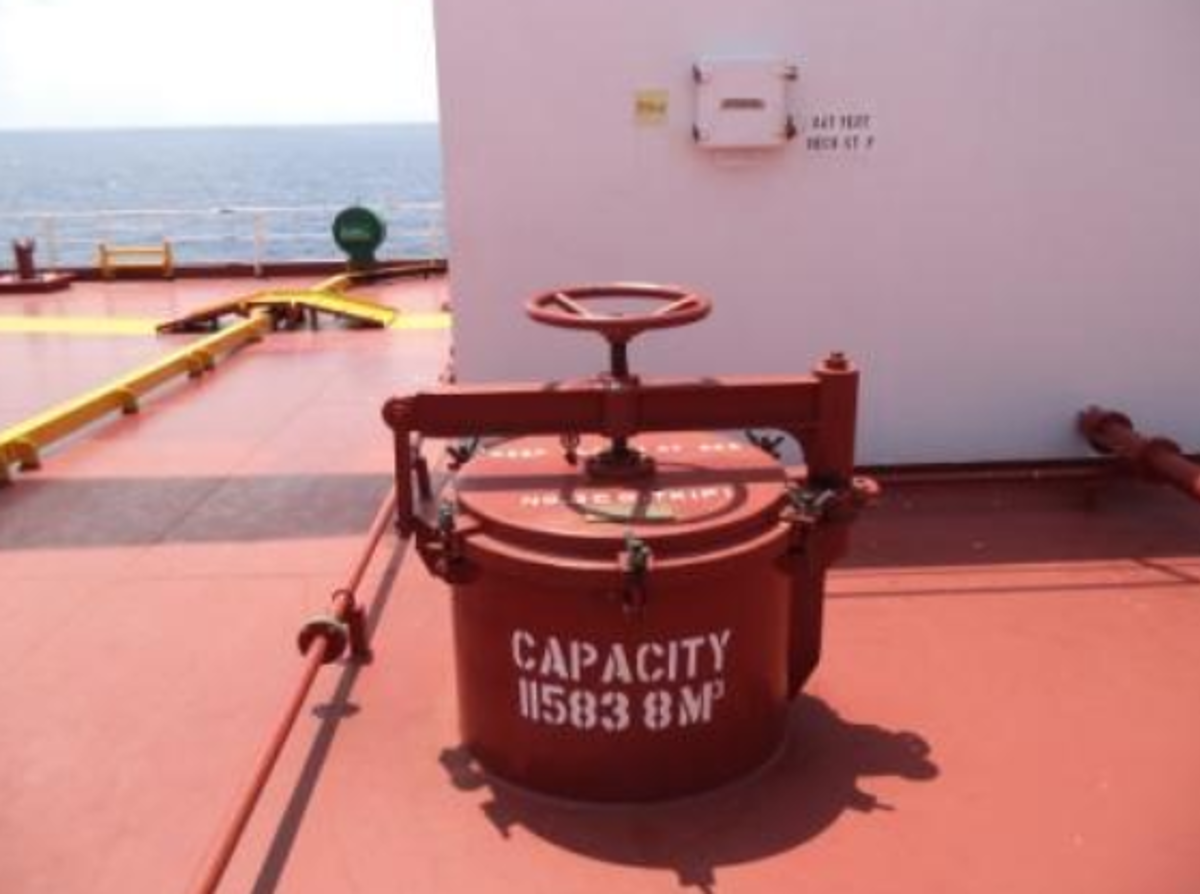Confined space fatality – Sharp Lady
- Safety Flash
- Published on 1 September 2016
- Generated on 2 March 2026
- IMCA SF 22/16
- 2 minute read
Jump to:
The Isle of Man Ship Registry has published Casualty Investigation Report No. CA118 on a confined space entry fatality that occurred on a crude tanker.
What happened?
The incident occurred after discharging crude oil. Equipment was lost at the bottom of a tank. It was decided that once the discharge was finished and crude oil washing completed, the equipment should be retrieved before loading the next cargo into this tank, to avoid any potential damage to the ship’s equipment.

The Chief Officer and Cadet entered the cargo tank after an enclosed space work permit and risk assessment had been completed. When the Chief Officer and Cadet reached the bottom of the cargo tank they felt debilitating effects of hydrocarbon vapour present at the lower level of the cargo tank. Both the Chief Officer and Cadet attempted to activate their Emergency Escape Breathing Devices (EEBD) and exit the cargo tank.
The Master observed the Cadet in difficulty and quickly entered the tank, ignoring the advice of a fellow crew member. The Chief Officer successfully exited the cargo tank but the Cadet had collapsed unconscious on the tank bottom. When the Master reached the tank bottom to aid the Cadet he was overcome by hydrocarbon vapour and collapsed.
The alarm was raised and a rescue was quickly initiated. The Master and Cadet were retrieved from the bottom of the cargo tank and brought to the main deck where first aid was administered. The report concludes that the Master died and the Cadet was injured as a result of entering the cargo tank containing a concentration of hydrocarbon vapour at the bottom of the cargo tank.
Conclusions of the report
The ship’s safety procedures for enclosed space were not fully complied with and the risk posed by the hydrocarbon vapour measured in the cargo tank was not appreciated by those involved in the tank entry preparations.
The report also concludes that opportunities were missed on board to stop the tank entry by several crew members and that the death of the Master could have been prevented had the safety procedures on board been followed in full.
The full report can be found here.
A summarised version of this report has also been circulated by the Nautical Institute MARS system – see https://www.nautinst.org/resources-page/201626-enclosed-space-fatality.html
Members are reminded of IMCA’s safety video Working in confined spaces.
IMCA Safety Flashes summarise key safety matters and incidents, allowing lessons to be more easily learnt for the benefit of the entire offshore industry.
The effectiveness of the IMCA Safety Flash system depends on the industry sharing information and so avoiding repeat incidents. Incidents are classified according to IOGP's Life Saving Rules.
All information is anonymised or sanitised, as appropriate, and warnings for graphic content included where possible.
IMCA makes every effort to ensure both the accuracy and reliability of the information shared, but is not be liable for any guidance and/or recommendation and/or statement herein contained.
The information contained in this document does not fulfil or replace any individual's or Member's legal, regulatory or other duties or obligations in respect of their operations. Individuals and Members remain solely responsible for the safe, lawful and proper conduct of their operations.
Share your safety incidents with IMCA online. Sign-up to receive Safety Flashes straight to your email.